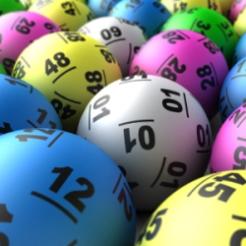Lottery funding of sport, arts and heritage could climb by around £50m per causal area in a reform of the National Lottery previewed in parliament last week.
The proportion of lottery funding received by the three areas will increase from the current levels of 16.66 per cent each to 20 per cent over the next two years. Concurrent with this, the Big Lottery Fund’s proportion of lottery funding will drop from the present rate of 50 per cent to 40 per cent in 2013/2014.
Under-secretary of State for Culture John Penrose raised the planned changes in a debate in parliament in which he said that Big “will be refocused, sharpened and – if I may put it like that – purified”.
But, while the proportion of good causes funds the Big Lottery Fund receives will decrease, the amount of money it has to distribute will rise in the next two years as a result of the ending of the Olympics’ siphoning off of National Lottery funds.
“Last year the Big Lottery Fund’s total income was £564m,” said Penrose. “With a 40 per cent share, the projection for Big for 2013/14 – after the Olympic transfers end – is £630m.”
Penrose batted off suggestions from his own Conservative colleagues that Big be abolished, or rebranded, arguing that “Big, if managed properly and in the pure form we hope to get it in, has a tremendously important future”.
While the increase in lottery pledges to the arts has been made amid an environment of predicted widespread and devastating cuts to the sector, Penrose said he was adamant that lottery funds do not act as substitutes for government spending. “[Lottery] should not be used to subsidise or replace government spending but should go to causes that would not otherwise have received funding,” he said.
“That is essential because the four areas to which it gives money – heritage, sport, culture and what is now called the Big Society – all go to making the soul of the country work.”
Profits tax approach
The minister also suggested that more money could be funnelled into the sector via reforming the lottery itself. “We want to examine the case for instituting a gross profits tax approach to the lottery,” Penrose told parliament.
The reform would allow the lottery to change the rate at which it offers prizes, which may result in a boost in ticket sales and consequently more money for the lottery. However, Penrose admitted that there remain flaws with the suggestion, namely the concern that taxpayers are not ripped off by the change.
Common reporting standards
In the same speech, Penrose indicated that his government will demand the standardisation of reporting across the lottery funders.
“I have set the lottery-disbursing organisations the challenge of agreeing a common set of reporting standards, so they all show their numbers in the same way, enabling us to make a direct comparison,” he said.
The end goal of such standardisation, Penrose said, was to identify less efficient funders and bring them up to a more frugal standard.
“It would be irresponsible for any government, particularly a newly-elected one, not to run over the figures with a slide rule and look at whether some things can be improved,” he said.









